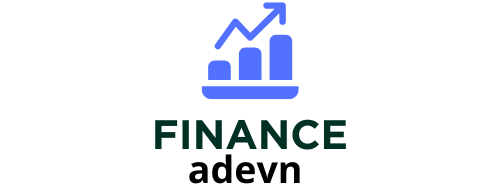Decentralized Credit Scores: A Threat to Traditional Banks1 now
Table of Contents
Introduction to Decentralized Credit Scores

The concept of decentralized credit scores represents a significant departure from the traditional methods of assessing creditworthiness. Unlike conventional credit scoring systems, which typically rely on centralized banks or credit bureaus to collect and analyze an individual’s financial history, decentralized credit scores utilize blockchain technology to create a transparent, secure, and user-controlled representation of a person’s creditworthiness. learn more about : Decentralized Finance Courses; This innovative approach addresses several shortcomings associated with traditional credit scoring, such as data privacy issues and the potential for bias in algorithmic evaluations.
Thank you for reading this post, don't forget to subscribe!At the core of decentralized credit scores is the utilization of distributed ledgers that allow individuals to have greater control over their financial data. Blockchain technology ensures that information is immutable and can be verified by participants within the network, thus reducing the chances of fraud that often plagues centralized systems. Users can grant access to their credit history only to select parties, maintaining their privacy while also promoting informed lending decisions. Moreover, the decentralized nature of this scoring system enables a more inclusive approach to credit assessment.
Moreover, decentralized credit scores tend to be more dynamic and can incorporate a wider range of data points beyond mere credit history. This includes factors such as utility payments, rent history, and other financial behaviors that can paint a more accurate picture of an individual’s reliability. Such an enhanced perspective on creditworthiness stands to benefit not only lenders in making more informed decisions but also borrowers who may be unjustly judged by narrow, traditional metrics. By embracing innovation and technology, decentralized credit scoring introduces a compelling alternative that challenges the legacy systems of financial assessment.
The Evolution of Credit Scores
The concept of credit scoring has undergone significant transformation since its inception. Traditionally, the FICO score has been synonymous with creditworthiness, serving as a pivotal metric for lenders assessing loan applications. Introduced in the 1980s, the FICO score helped standardize the evaluation of an individual’s credit history, enabling banks and financial institutions to mitigate risks associated with lending. This model primarily considered historical data, such as payment history, credit utilization, and the length of credit accounts.
However, as consumer behavior evolved, so too did the approaches to credit scoring. The surge of data analytics and technology shifted the landscape, prompting the introduction of alternative scoring models such as VantageScore. VantageScore, developed collaboratively by the three major credit bureaus, aims to provide a more inclusive assessment of creditworthiness, particularly to those with limited credit histories or unconventional financial behavior. This reflects a growing recognition of diverse financial habits and the necessity for a more holistic view of credit risk.
Moreover, the way consumers interact with credit has transformed dramatically. The rise of digital banks and fintech solutions means that consumers now participate in a broader range of financial activities. As a result, credit scoring systems are adapting to include non-traditional data sources such as utility payments, rent payments, and even social media behavior. This evolution underscores the increasing importance of alternative data in creating a more accurate and comprehensive credit assessment. Technological advancements have broadened the scope of what constitutes creditworthiness.
In this dynamic landscape, the traditional reliance on conventional scoring models faces challenges. As consumers demand more transparency and personalized financial products, the credit scoring industry is moving towards innovations that could reshape how creditworthiness is viewed in the future. With emerging trends and models, the future of credit scores is likely to be more inclusive and reflective of the diverse financial behaviors exhibited by consumers today.
Mechanics of Decentralized Credit Scoring

Decentralized credit scoring systems represent an innovative leap from traditional models, utilizing blockchain technology to enhance transparency and security. In such systems, individual data contributors store their personal financial information directly on a blockchain network, as opposed to a centralized database managed by a banking institution. This shift to a decentralized framework fundamentally alters the way credit scores are formulated and assessed.
Data collection in decentralized credit scoring involves various sources that participants choose to share, such as payment histories, assets, and even social behaviors. Upon recording each participant’s data on the blockchain, cryptographic methods ensure that the information remains secure and private. Importantly, participants maintain control over their data, allowing them to decide who can access their information and under what conditions. This collaborative nature introduces a level of trust absent in traditional banking systems, where data is often manipulated or used without explicit consent.
The analysis of data in decentralized systems leverages smart contracts—automated programs that execute predefined rules based on specified conditions. For instance, a smart contract can automatically aggregate diverse data points to calculate an individual’s creditworthiness in real-time. Such a process not only minimizes human errors but also greatly expedites the credit evaluation procedure. Furthermore, enhanced transparency is achieved, as all actions taken upon the blockchain can be consistently audited.
Ultimately, decentralized credit scoring serves as a robust alternative to traditional methods, providing a more inclusive, secure, and reliable means of assessing creditworthiness. By adopting this innovative technology, stakeholders can pave the way for an equitable financial landscape where trust is built through transparency and consensus. As we observe these advancements in action, it raises the question of whether conventional banks will remain relevant in a rapidly evolving financial ecosystem.
Advantages of Decentralized Credit Scores
Decentralized credit scores present several distinct advantages that could fundamentally reshape the landscape of credit evaluation and accessibility. Firstly, these systems offer increased accessibility for underbanked populations, who often find traditional banking systems unapproachable due to rigid requirements and lack of comprehensive financial history. By employing decentralized models, individuals without established credit histories can generate credit profiles based on alternative data, such as utility payments and rental history, enabling them to access loans and financial services previously out of reach.
Another significant benefit is enhanced privacy for consumers. Traditional credit scoring systems often rely on centralized databases that collect and store sensitive personal information, raising concerns regarding data breaches and unauthorized access. Decentralized credit scoring platforms, on the other hand, utilize blockchain technology to ensure that users retain control over their own data. This means consumers can choose what information to share, fostering a sense of security and trust in the lending process.
Additionally, decentralized credit scores have the potential to significantly reduce instances of fraud. Centralized systems are more vulnerable to hacking and manipulation, creating opportunities for fraudulent activities. Blockchain’s inherent transparency and immutability provide a robust framework that allows lenders to verify data integrity easily.
Moreover, decentralized models can lead to more accurate scoring as they consider a broader array of data points. Traditional credit scores typically rely on a limited set of variables; however, decentralized systems can incorporate alternative metrics to paint a comprehensive picture of an individual’s creditworthiness. As a result, this approach can yield fairer assessments, enabling lenders to make informed decisions that reflect the true risk profile of borrowers, ultimately contributing to a more inclusive financial ecosystem.
Challenges and Drawbacks

While decentralized credit scores present innovative opportunities for financial assessments, they are not without their challenges and drawbacks. One of the primary concerns lies in data privacy. Unlike traditional credit scoring systems, which often rely on centralized databases, decentralized models depend on multiple entities to store and share data. This distribution raises questions regarding the protection of sensitive personal information. If not properly managed, an individual’s financial data could be exposed, leading to potential misuse or breaches.
In addition to privacy concerns, regulatory hurdles pose a significant challenge for the adoption of decentralized credit scores. Traditional financial institutions are governed by strict regulations designed to safeguard borrowers and maintain market stability. The integration of decentralized systems into the existing financial infrastructure may face resistance from regulators, who must adhere to these established frameworks. This could result in uncertainty.
Algorithmic bias is another critical issue associated with decentralized credit scores. Depending on the data sources and methodologies used in these systems, there is a risk of inadvertently perpetuating existing biases or creating new ones. For instance, if the underlying data reflects skewed demographic trends, the resulting credit scores could unfairly disadvantage certain groups. Addressing algorithmic bias is essential to ensuring equitable access to financial opportunities within decentralized credit scoring frameworks.
Lastly, the technical complexities of implementing decentralized credit scoring systems cannot be overlooked. Establishing a reliable network that integrates various data inputs while ensuring data accuracy and security is a formidable task. As the technology evolves, so too will the need for ongoing updates and maintenance, further complicating deployment. These challenges must be carefully navigated to harness the potential benefits of decentralized credit scores while safeguarding the interests of all stakeholders.
Case Studies of Decentralized Credit Scoring
Decentralized credit scoring is emerging as a viable alternative to traditional methods, with several case studies highlighting its effectiveness. One prime example is the implementation of the decentralized credit scoring system by a fintech company in Estonia. By leveraging blockchain technology, this company allowed users to curate their own financial data, which then contributed to their credit score. As a result, borrowers with non-traditional credit histories gained access to loans that they otherwise would have been denied. This case showcased the advantages of inclusivity and transparency, as users maintained ownership of their data and could make adjustments when necessary.
Another noteworthy instance is the collaboration between a consortium of banks and a blockchain startup in the United States. This project aimed to create a decentralized framework for credit evaluation, reducing the reliance on credit bureaus. By integrating smart contracts, lenders could directly assess borrower risk without intermediaries. The pilot program revealed that loan defaults decreased by 20% compared to traditional evaluations.
Internationally, a microfinance initiative in Kenya adopted decentralized credit scoring to assess the creditworthiness of smallholder farmers. This program utilized performance data from agricultural production, combined with social indicators, to generate credit scores. Farmers previously considered “unbankable” benefitted from access to financing, leading to significant improvements in crop yield and economic stability. This case illustrated how decentralized systems could adapt to local contexts and foster economic growth among underserved populations.
These examples underscore the potential for decentralized credit scoring to revolutionize the financial landscape. By enabling users to control their credit information and providing financial institutions with more nuanced data, these case studies are paving the way toward a more equitable and transparent credit evaluation process. The lessons learned from these implementations are crucial for shaping the future of banking and credit assessment.
Impact on Traditional Banking

The emergence of decentralized credit scores brings significant implications for traditional banking institutions. As the financial landscape evolves to accommodate these innovations, banks may find it necessary to reassess their operational frameworks and adapt their service offerings to remain competitive. This shift could entail the integration of blockchain technology and alternative credit assessment methods, which challenge the long-standing practices of centralized credit scoring systems.
One potential impact is the need for banks to enhance their digital capabilities. As decentralized credit systems provide a more robust and transparent way of evaluating creditworthiness, traditional banks may feel the pressure to adopt similar technologies. By utilizing data from diverse sources, including social media and transaction history, they can create a more accurate and holistic view of potential borrowers. Failing to embrace these changes could render banks less relevant in a market that increasingly favors decentralized solutions.
Moreover, traditional banks may need to redefine their customer relationships. With decentralized credit scores often allowing consumers to take control of their financial data, banks might have to offer personalized services to retain customers. Engaging clients with tailored financial products and transparent lending processes will likely become essential. This could lead to a paradigm shift where customer engagement and satisfaction become as crucial as risk assessment and profitability.
Although the transition may pose challenges, it also presents opportunities for collaboration. Traditional banks and decentralized systems can coexist by leveraging each other’s strengths. For instance, banks may partner with decentralized credit platforms to improve their offerings while maintaining their infrastructure.
As decentralized credit scores become more pervasive, traditional banking institutions must adapt proactively to survive and thrive in this rapidly evolving financial landscape.
Consumer Perspectives and Adaptation
The evolving landscape of decentralized credit scores has garnered significant interest among consumers, leading to a variety of opinions regarding its viability compared to traditional scoring methods. Recent surveys illustrate that a substantial portion of the public is beginning to recognize the potential benefits associated with decentralized credit systems. Many view these systems as offering greater transparency and fairness, since they can utilize a broader array of data points beyond mere credit history to assess an individual’s creditworthiness.
For instance, younger demographics, particularly millennials and Gen Z, demonstrate a notable willingness to adopt decentralized credit scores. These groups often prioritize innovation and technological advancements and are generally more open to alternative financial solutions. In contrast, older consumers may exhibit skepticism, rooted in their familiarity with conventional credit scoring systems. However, even among older adults, there is a growing acknowledgment of the limitations of traditional models.
The concept of peer-to-peer lending platforms that often use decentralized systems further highlights the evolving consumer attitudes toward credit assessment. Participants in these platforms tend to appreciate the ability to engage in fairer borrowing practices, emphasizing community trust and higher levels of financial agency. Additionally, many consumers express concerns regarding data privacy and security in decentralized models, leading them to cautiously assess their willingness to adopt such technologies. As education around decentralized credit scores increases, consumer readiness is likely to correlate with understanding both the advantages and potential pitfalls associated with these systems.
Ultimately, consumer perspectives on decentralized credit scores appear to be increasingly favorable, yet the path to widespread adoption will be influenced by demographic priorities, trust in new technologies, and the ongoing dialogue about data privacy and security. As these conversations evolve, it will be imperative for the financial industry to listen to consumer needs and concerns during this transformation.
Future Outlook: Will Traditional Banks Become Obsolete?
The emergence of decentralized credit scores marks a significant shift in the landscape of financial services, challenging the traditional dominance of conventional banking institutions. As the financial ecosystem evolves, several key trends are likely to influence whether traditional banks will become obsolete or adapt to the changing environment.
One potential trajectory is the integration of decentralized credit scoring into existing banking frameworks. Rather than facing extinction, traditional banks may adopt new technology to enhance their services. By leveraging decentralized models, banks could improve transparency and accessibility while offering more personalized lending solutions. Such partnerships between traditional financial institutions and emerging technologies can streamline processes and satisfy customer demand for more efficient services.
However, the rise of decentralized finance (DeFi) platforms poses a credible challenge to traditional banks. DeFi offers peer-to-peer lending opportunities, bypassing the need for banks as intermediaries. This shift could lead to a decline in banks’ relevance, especially among consumers who prioritize lower fees and faster transactions. Innovative startups are already leveraging blockchain technology to create comprehensive financial ecosystems that operate independently of traditional banks.
Furthermore, regulatory responses will play a critical role in shaping the future of banking. decentralized credit scores; As decentralized credit scores gain traction, regulatory bodies are likely to scrutinize these systems to ensure consumer protection and maintain market stability. decentralized credit scores; The interaction between regulatory frameworks and decentralized innovations will be crucial in determining how traditional banks adapt to the changing landscape.
In conclusion, while the rise of decentralized credit scores poses significant challenges to conventional banking, it is unlikely that traditional banks will become entirely obsolete. decentralized credit scores; Instead, a more collaborative approach may emerge, where traditional institutions evolve to embrace the advantages provided by decentralized innovations, ensuring their continued relevance in the evolving financial landscape.
ai accounting budgeting strategies business plan credit cards credit scores cryptocurrency analysis crypto investment crypto staking crypto taxes debt consolidation debt management economic outlook esg stocks executive retirement finance courses finance management fintech app fintech education income streams invest gold lending platforms make money online jobs personal finance personal loans real estate retirement planning retirement plans savings accounts seo optimization stock market tax minimizers tax strategies workspace business
Decentralized Credit Scores: A Threat to Traditional Banks1 now
The concept of decentralized credit scores represents a significant departure from the traditional methods of assessing creditworthiness. Unlike conventional credit scoring systems, which typically rely on centralized banks or credit bureaus to collect and analyze an individual’s financial history, decentralized credit scores utilize blockchain technology to create a transparent, secure, and user-controlled representation of a person’s creditworthiness. learn more about : Decentralized Finance Courses; This innovative approach addresses several shortcomings associated with traditional credit scoring, such as data privacy issues and the potential for bias in algorithmic evaluations.

